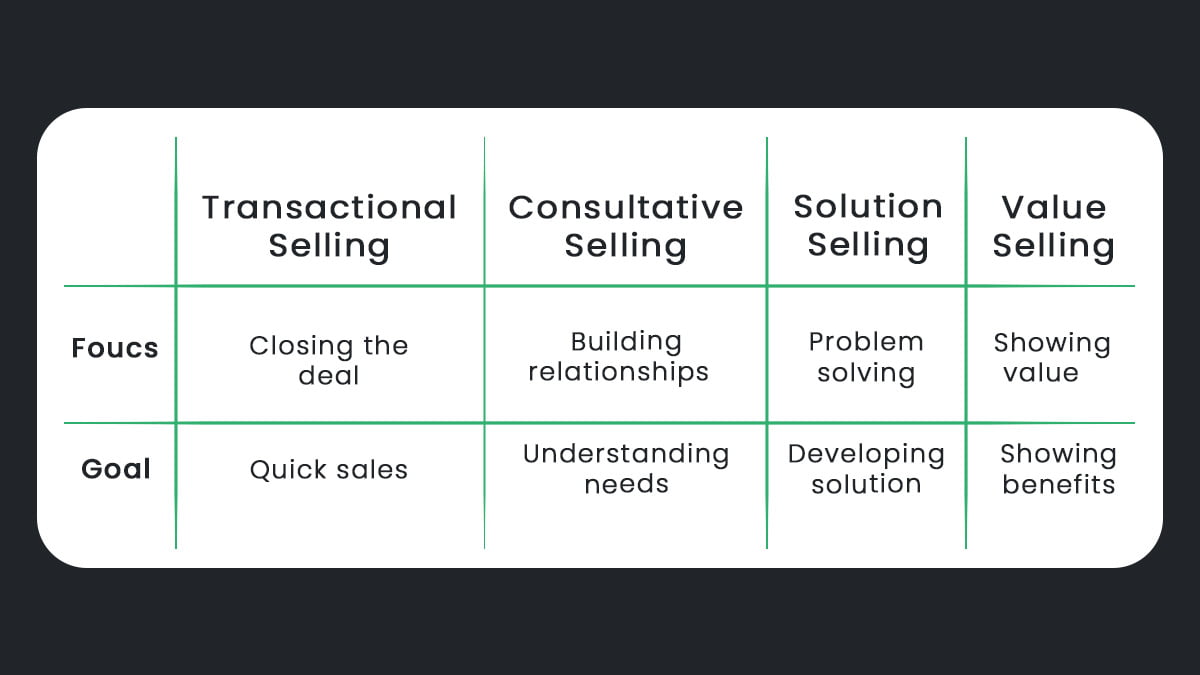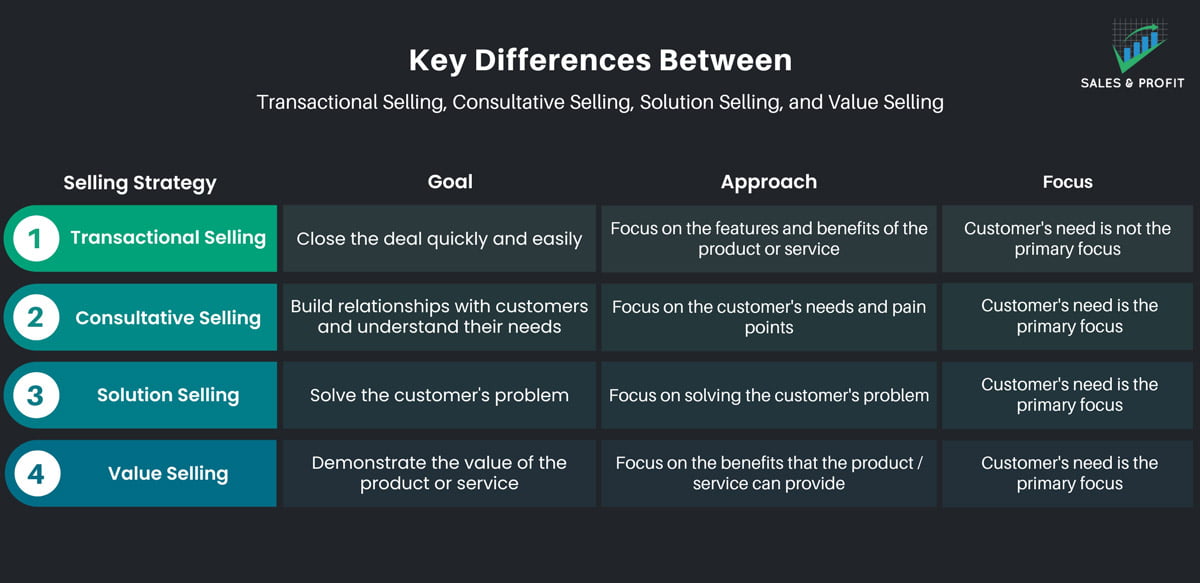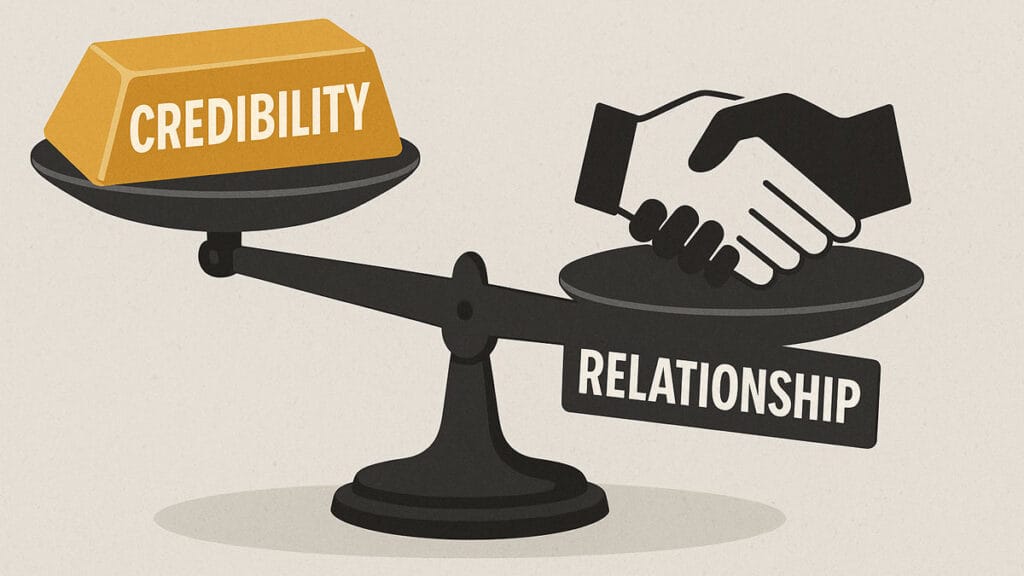Transactional selling, consultative selling, solution selling, and value selling are all different sales strategies with different goals and approaches.
Sales is not a one-size-fits-all game, and understanding these distinct approaches is essential for any sales professional looking to excel in their role.
Each selling method has its unique characteristics, strategies, and benefits, catering to different customer needs and business scenarios.
During our sales consulting engagement with our clients, we often encounter questions about the differences between these selling approaches
So, in this blog, we’ll explore the core difference between transactional selling, consultative selling, solution selling, and value selling.
Difference Between Transactional Selling – Consultative Selling – Solution selling & Value Selling
Transactional Selling
Transactional selling is a short-term sales strategy that focuses on closing the deal quickly and easily.
This type of selling is often used for low-cost, low-risk products or services where the customer is already familiar with the product or service.
Transactional sellers typically focus on the features and benefits of their product or service, and they often use discounts or promotions to close the deal.
Consultative Selling
Consultative selling is a longer-term sales strategy that focuses on building relationships with customers and understanding the their unique needs, challenges, and goals.
This type of selling is often used for high-cost, high-risk products or services where the customer is not yet familiar with the product or service.
Consultative sellers typically focus on the customer’s needs and pain points, and they work with the customer to develop a solution that meets their needs.
Solution Selling
Solution selling is an approach that goes beyond simply selling a product or service.
Solution selling is a type of consultative selling that focuses on solving the customer’s problem.
This type of selling is often used for complex products or services where the customer may not be aware of all of their options.
Solution sellers typically take the time to understand the customer’s problem, and they work with the customer to develop a solution that meets their needs and solves their problem.
Value Selling
Value selling is a sales strategy that focuses on the specific value and advantages that a product or service brings to the customer.
Value sellers typically focus on the benefits that the product or service can provide, and they use data and stories to demonstrate the value of their product or service.
It goes beyond simply highlighting features and focuses on how the offering addresses the customer’s pain points and delivers quantifiable benefits.
The goal is to help customers understand the positive impact and return on investment they can expect from choosing the solution.
Summarizing the Key Difference
(Click on the image to enlarge it)
The best sales strategy for you will depend on the type of product or service you are selling, the needs of your customers, and your own sales style.
FREE Consulting Call to Overcome Your Sales Challenges
Request a 100% free “no obligation” sales consulting call where we will understand your current sales challenges and help you with proven methods to solve those and improve your sales metrics and grow your revenue.
(Already 100+ B2B companies have seen growth in their sales and revenue with us)
Additional Tips for Each Strategy
Transactional Selling
- Focus on the features and benefits of your product or service.
- Use discounts or promotions to close the deal.
- Be prepared to walk away from a deal if the customer is not willing to pay your price.
Consultative Selling
- Build relationships with your customers.
- Understand your customers’ needs and pain points.
- Work with your customers to develop a solution that meets their needs.
- Be patient and persistent.
Solution Selling
- Take the time to understand your customers’ problems.
- Work with your customers to develop a solution that solves their problems.
- Be creative and innovative in your solution.
- Be confident in your solution.
Value Selling
- Focus on the benefits that your product or service can provide.
- Use data and stories to demonstrate the value of your product or service.
- Be prepared to answer any questions that your customers may have.
- Be enthusiastic about your product or service.






